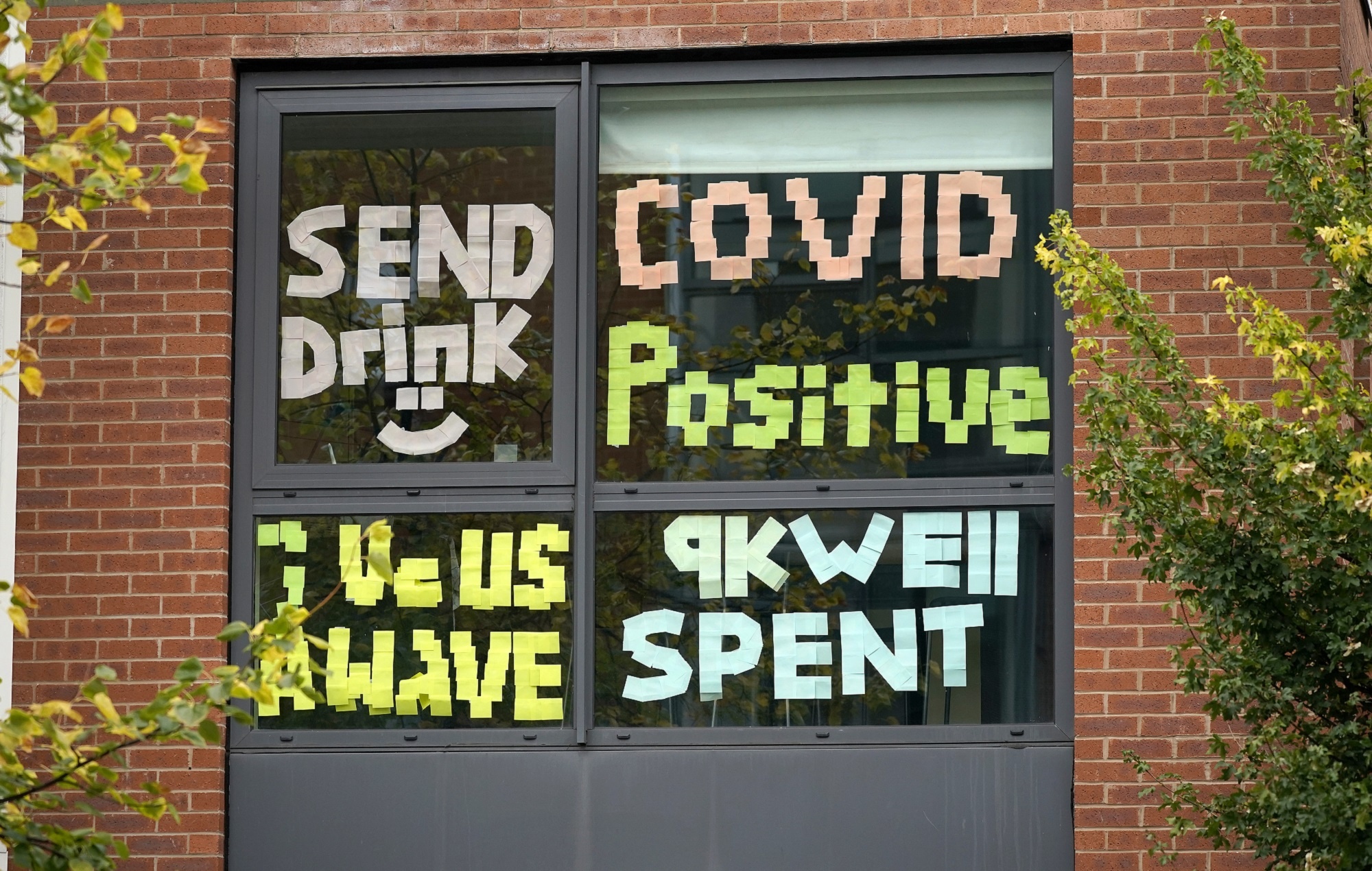Rent strikes are taking all over the UK. A combination of Covid-19 related restrictions and what many see as unfair treatment from their universities have brought student frustrations to a boiling point.
Universities have been accused of deliberately misleading their students. Martyn Moss, representing the University and College Union, has stated that ‘universities have been luring students back on the promise of a full campus experience’ to ‘bank the fees for accommodation and the tuition fees’. Indeed, the vast majority of students have received little to no face-to-face teaching despite being told that they would receive a combination of online and in-person. Waves of Covid-19 have swept through universities, forcing many to isolate within their flats without any access to outside space. Even when not in isolation, meeting new people is more difficult than ever before. The tier system, a 10 pm curfew and two periods of lockdown have made socialising nearly impossible. Studying online is also tricky, with video calls proving to be no substitute for face-to-face contact. University education, costing £9,250 a year, has become entirely dependent on the quality of wi-fi. Students have become demotivated and disenchanted.
For many, this problematic transition has been marred by economic anxiety. Covid-19 has had a devastating effect on the economy, with the service and hospitality sectors hardest hit. This has made it all but impossible for students to find a part-time job, forcing many to consider whether they can afford to move away to attend university. A recent survey by Save The Student shows that rents are continuing to rise. Furthermore, university-owned accommodation is more expensive on average than private landlords or halls. Maintenance Loans often fall short of these higher rents. The average student receives £572 per month from their Maintenance Loan, which falls £223 short of their monthly living costs. It is not surprising that 51% of students struggle to keep up with their rent, with 54% saying that anxieties around rent affect their mental or physical health.
These anxieties are often even greater for international students. One student from the University of Leeds finds it difficult to return to Leeds from their native Germany due to travel restrictions. They complained they ‘can’t come back to [their] accommodation until late April and the university will not release [them] from [their] contract’. This may end up costing thousands of pounds. The student added that ‘it’s not like it doesn’t cost too much for what we get anyway’.
It is hardly surprising that students are uniting to demand fair treatment. Circulating through accommodation corridors, websites and social media, strike movements are growing. Students have a shared identity and want to work collectively to demand fair treatment.
Of 140 UK Universities, 55 are in the midst of a rent strike. In Manchester, rent strikers occupied a disused tower block and hung banners decrying the ‘University of Moneychester’. As a result, Manchester students were granted 30% off rent for the first half of the year, a no-redundancy policy for maintenance staff and a promise of no penalties for strikers. Protesters in Bristol, meanwhile, won a payout that amounted to £3.2 million. Buoyed by these successes, rent strikes are growing in both number and ferocity.

Cut The Rent leads the fight for University of Leeds students. What started as a WhatsApp group chat has become a university-wide movement. A spokesperson from Cut The Rent said that their premise has remained the same throughout: ‘we want students to be treated fairly, and we don’t think they have been’. They demand ‘financial compensation for the issues faced due to the university’s actions as well as the services that were promised and not provided’. They argue that ‘some foreign students are paying for flats which they have not even stepped foot in’ due to the Covid crisis, while other students ‘have given perfectly valid reasons for exiting their contracts and have been denied’. Their petition has received close to 5000 signatures.
The University of Leeds issued a six-week rent refund for those in University-owned accommodation. Students who returned to their accommodation, however, are not eligible. Cut The Rent argue that this refund ‘fails to take last term’s travel window and the fact that we did not have the usual freedom to return to halls during the holiday into account’. They believe that this approach has not considered those with valid reasons to return, such as being unable to work from home or pre-existing travel arrangements.
Cut The Rent demand a 40% refund for all, and that the university provides a ‘full rebate for all students which covers last term’s travel window, the holidays and lockdown’.
As the University of Leeds had not responded to these demands by 22nd January, a rent strike began. A spokesperson from Cut The Rent said that around 90 people signed a form stating that they will participate in the strike, withholding more than £130,000. Cut The Rent promised that this strike will continue for ‘as long as it takes’ until ‘the university gives us some ground and promises not to punish any students involved, financially or otherwise’. At the time of writing, the University of Leeds has yet to release a statement about the strikes.
If you want to get involved with Cut The Rent, check out their website or sign their petition. For further updates, they are @CutTheRentLDS on Instagram and Twitter.
Featured Image: Christopher Furlong/Getty Images

